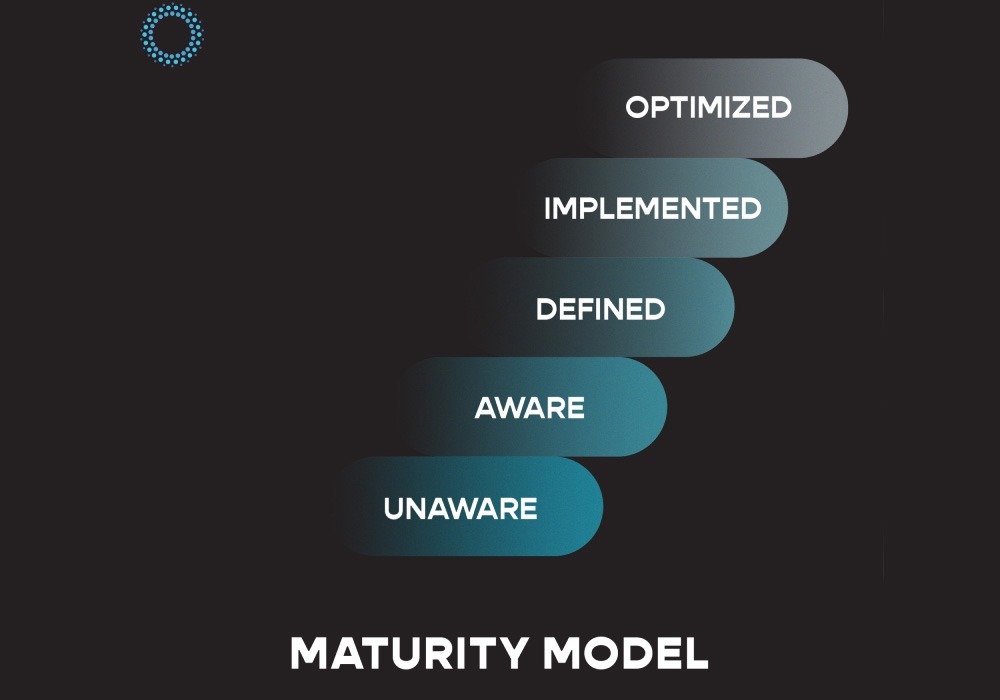
In this blog post, we’ll define a maturity assessment and discuss its benefits and risks. We’ll also explore unique data risks faced by five different industries.
It’s important to stay up to date with the latest cyber threats in order to protect your organization from potential attacks. In addition to implementing security measures, it’s also important for an organization to periodically conduct a maturity assessment to identify areas for improvement.
What is a Maturity Assessment?
A maturity assessment is a comprehensive evaluation of an organization’s security posture. This assessment involves evaluating an organization’s policies, procedures, and technology to determine how effectively they are protecting against cyber threats. The assessment identifies gaps in security and provides recommendations for improvement. The assessment can be used to benchmark progress over time and compare an organization’s security posture to industry best practices.
Benefits of a Maturity Assessment
A maturity assessment provides numerous benefits, including:
- Identifying gaps in security: The assessment identifies areas where an organization may be vulnerable to cyber threats. This allows the organization to take steps to improve their security posture and reduce the risk of a successful cyber attack.
- Prioritizing security initiatives: The assessment helps organizations prioritize security initiatives based on their impact on overall security posture.
- Meeting compliance requirements: Many regulations and industry standards require organizations to periodically assess their cybersecurity maturity level. An assessment can help organizations meet these requirements and avoid penalties for non-compliance.
- Improving stakeholder confidence: A cybersecurity maturity assessment can help build stakeholder confidence by demonstrating that the organization is taking proactive steps to protect sensitive data.
Risks of Overlooking a Cybersecurity Maturity Assessment
While a cybersecurity maturity assessment provides numerous benefits, failing to conduct an assessment can have serious consequences. Risks of overlooking a cybersecurity maturity assessment include:
- Increased risk of cyber attacks: Failing to identify and address vulnerabilities can leave an organization open to cyber attacks.
- Increased cost: A successful cyber attack can be expensive, resulting in lost revenue, damage to the organization’s reputation, and legal fees.
- Non-compliance: Failure to meet compliance requirements can result in legal and financial penalties.
Unique Data Risks by Industry
Different industries face unique data risks based on the nature of their business. Here are five examples:
- Healthcare: The healthcare industry faces unique risks due to the sensitive nature of patient data. HIPAA regulations require healthcare organizations to protect patient data and report data breaches. Cyber attacks on healthcare organizations can lead to compromised patient data and loss of trust from patients.
- Retail: Retail organizations face data risks related to credit card fraud and data breaches. Retailers collect and store large amounts of customer data, including credit card information. If this data is compromised, it can lead to financial loss for the organization and damage to its reputation.
- Financial Services: Financial institutions are a prime target for cyber attacks due to the sensitive financial data they hold. Cyber attacks on financial institutions can lead to financial loss, regulatory penalties, and damage to the institution’s reputation.
- Energy: The energy sector faces unique risks due to the critical infrastructure it operates. Cyber attacks on the energy sector can disrupt the flow of energy and cause widespread outages. This can have serious economic and social consequences.
- Education: The education sector faces unique data risks related to the large amounts of student data it collects and stores. Cyber attacks on education institutions can compromise student data, leading to identity theft and fraud.
In conclusion, a maturity assessment is an important tool for organizations to identify areas for improvement in their security posture. The assessment can help organizations prioritize security initiatives, meet compliance requirements, and improve stakeholder confidence. Failing to conduct an assessment can lead to increased risk of cyber attacks, increased cost, and non-compliance.

